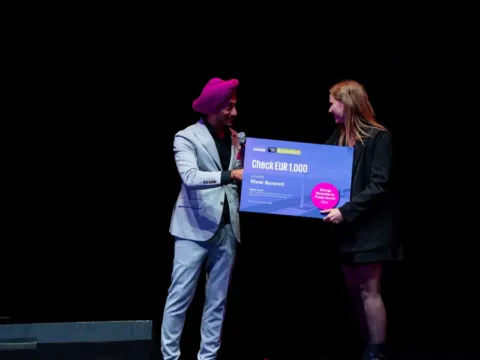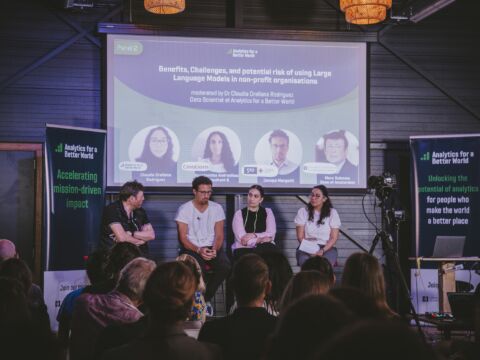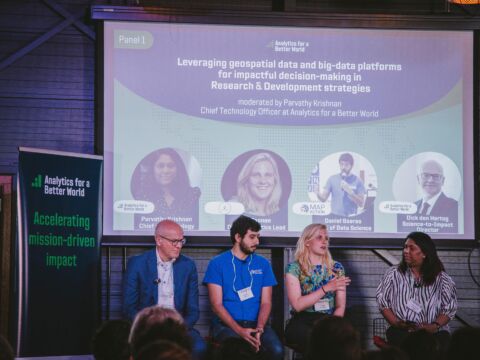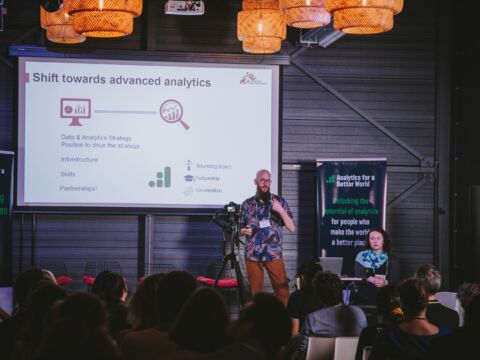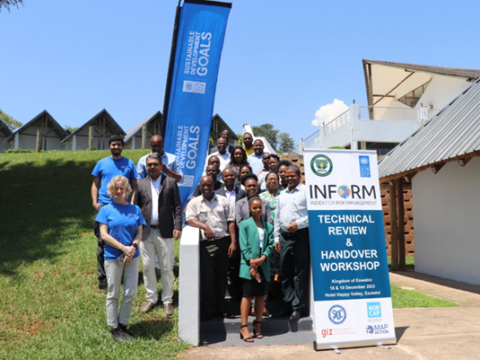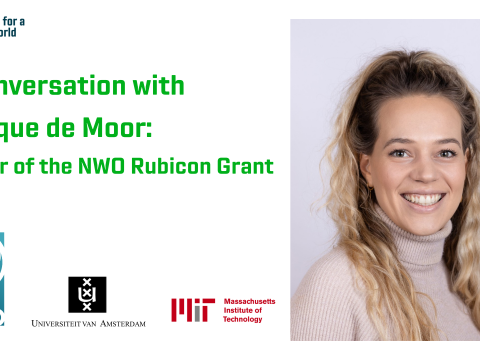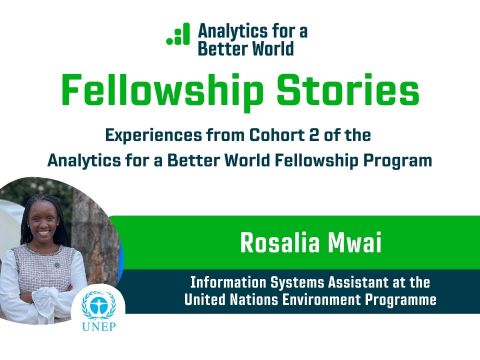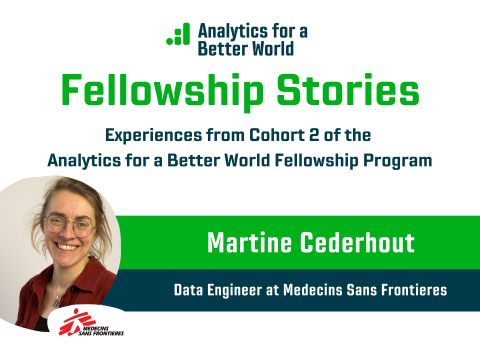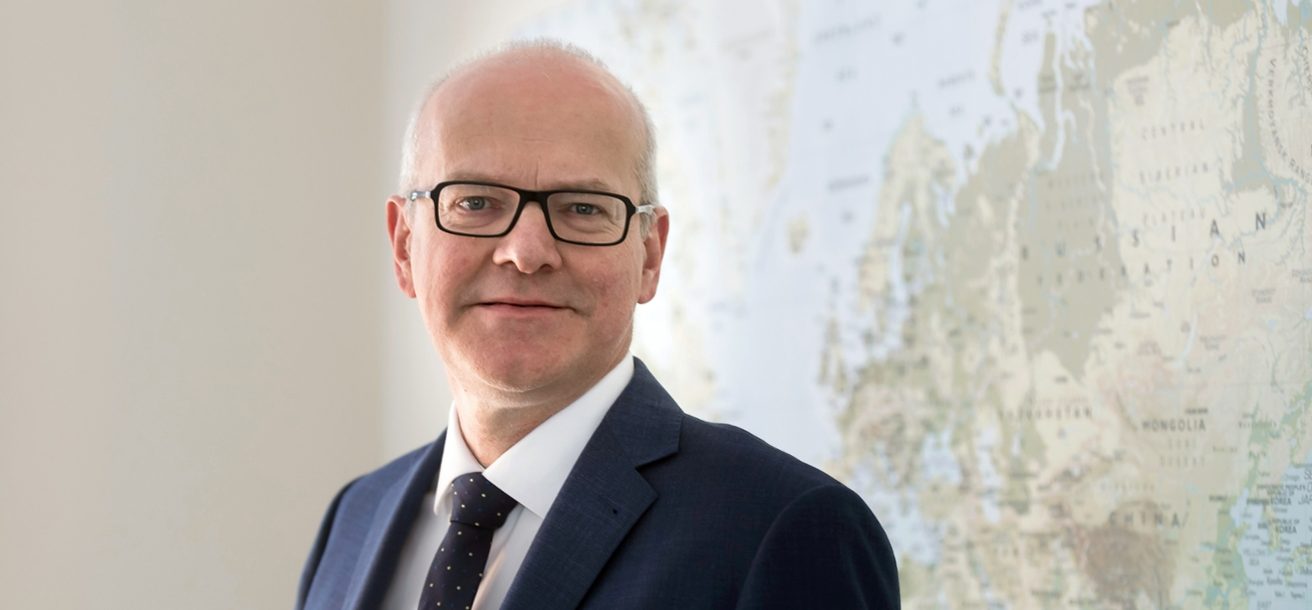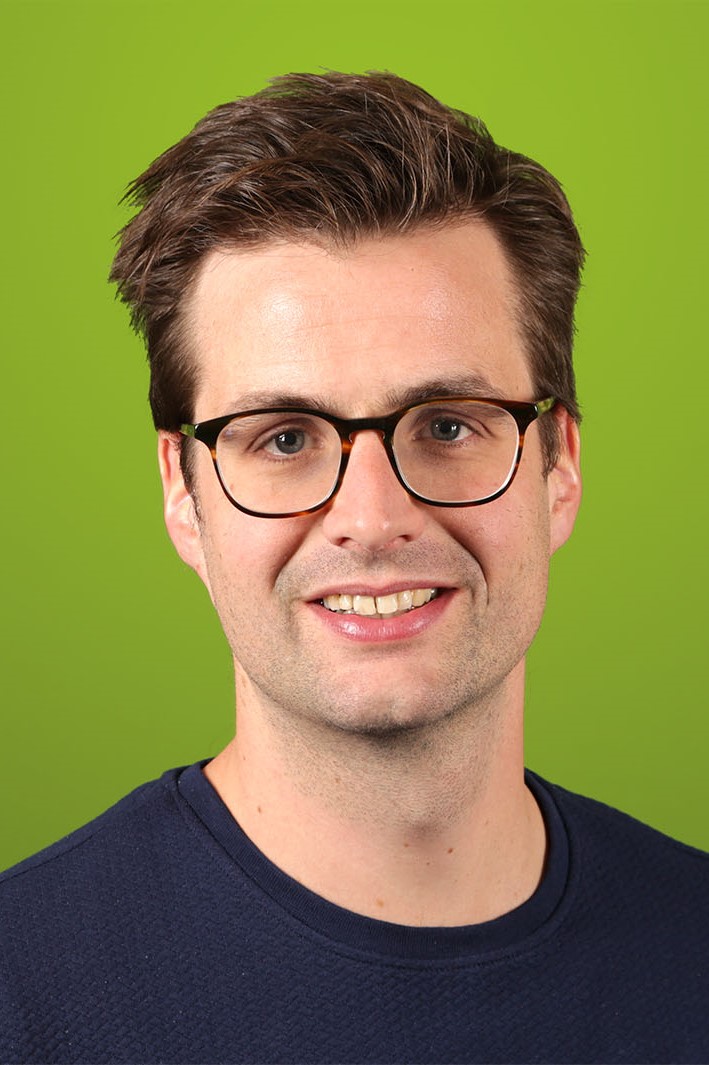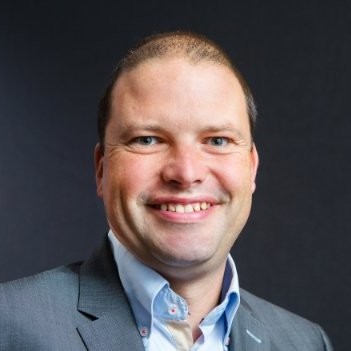ORTEC
See profileUniversity of Amsterdam Business School
See profileStory from our founders: Analytics will enable NGOs to help many more people
Dick den Hertog, professor of Operations Research, Marc Salomon, dean of the Amsterdam Business School - part of the University of Amsterdam - and Michael van Duijn CEO and managing director at ORTEC, are convinced: the new institute Analytics for a Better World (ABW) will enable humanitarian aid organizations to help even more people by scaling up the use of analytics.
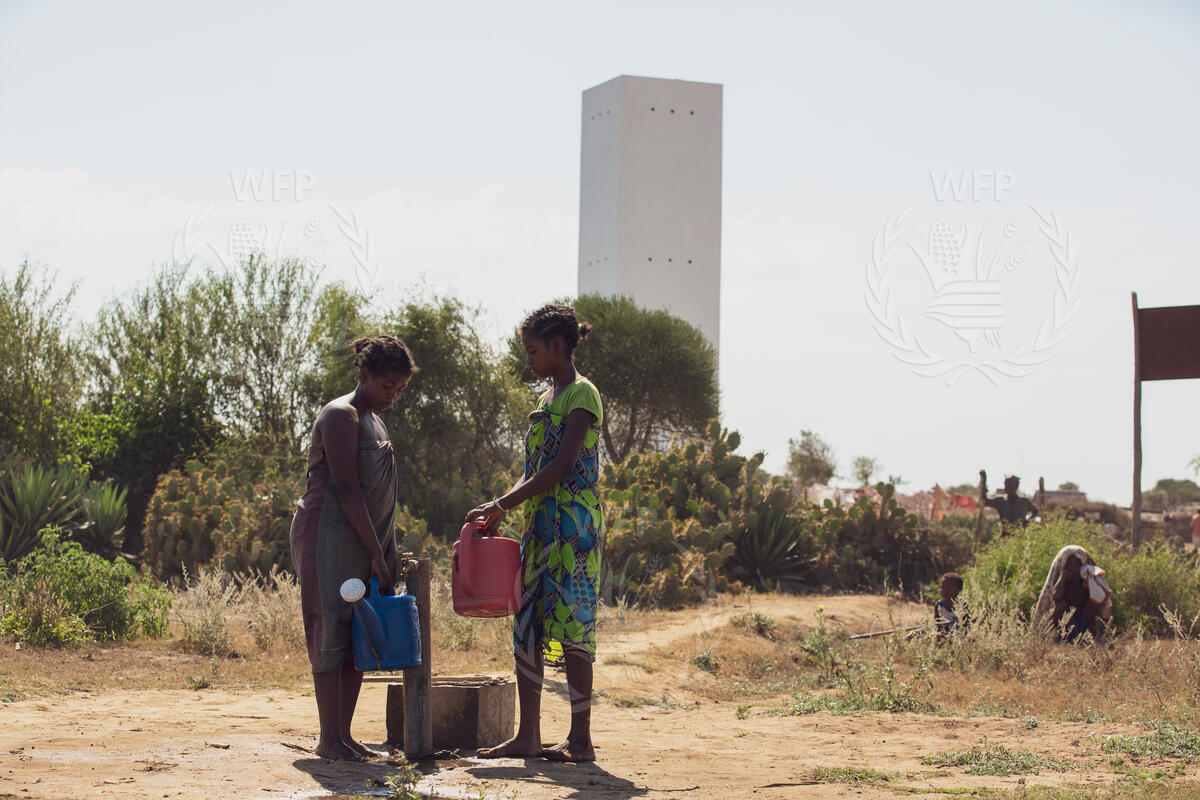
Dick den Hertog, professor of Operations Research, Marc Salomon, dean of the Amsterdam Business School - part of the University of Amsterdam - and Michael van Duijn CEO and managing director at ORTEC, are convinced: the new institute Analytics for a Better World (ABW) will enable humanitarian aid organizations to help even more people by scaling up the use of analytics.
Dick den Hertog, professor of Operations Research, Marc Salomon, dean of the Amsterdam Business School – part of the University of Amsterdam – and Michael van Duijn CEO and managing director at ORTEC, are convinced: the new institute Analytics for a Better World (ABW) will enable humanitarian aid organizations to help even more people by scaling up the use of analytics.
“Experience from ORTEC has shown that analytics, or using data to make better decisions, improves performance by about 10 to 15% in commercial companies,” Van Helden begins. And if it goes for companies, why wouldn’t it go for NGOs? Every year, the Dutch government spends about EUR 5 billion on development aid. “Based on that rule of thumb, we could free up another EUR 600 million every year to help make the difference.” Van Duijn: “In the business world, we typically see that advanced analytics not only contributes to improvements in financial performance, but also to sustainability and customer and employee satisfaction. But it requires a lot more than a fancy algorithm. We believe we have some key ingredients to add.”
Reusable solutions
AWB wants to do more than just help implement analytics. Salomon explains: “We’re also looking to create a digital solutions marketplace for NGOs, on which NGOs can shop around for solutions that have already been developed and validated by others. The basic idea is that, once they’ve been implemented, solutions can be reused, so that we do not have to keep reinventing the wheel. This marketplace will help NGOs cut costs, give them quicker access to solutions and significantly boost the impact of investments.” ABW also helps NGOs with education and research. Salomon continues: “We’ll be organizing Summer and Winter schools aimed at teaching NGO staff what they can do with analytics by going over practical examples suggested by people attending the courses. With these Summer & Winter Schools, we hope to inspire NGOs to harness analytics to help achieve their own goals and the UN’s Sustainable Development Goals.”
My children have about 80 years to go on this planet. So we better make sure that the world is heading in the right direction.
Drives
Both Amsterdam Business School and ORTEC are committed to the new institute, but why? “I’m a father of two myself, my eldest is 6 and my youngest is 2”, Van Helden explains. “They have about 80 years to go on this planet, so we had better make sure that the world is heading in the right direction.” Van Duijn amends: “I have studied econometrics a while ago and have discovered the power of math at an early age. During my 27 years at ORTEC, I have seen how analytics truly makes a difference at companies across the globe. At the same time, it’s frustrating to see that valuable research, technology and knowledge does not easily find its way to non-commercial organizations. And when it does, the tangible impact is often limited. In five years’ time, I hope that ABW has become a much larger movement with measurable impact and a lot more partners that share the same dream of improving the world using the power of advanced analytics. I hope ORTEC will ‘just’ be one of the many business supporters of ABW at that time.”
Den Hertog’s ambition to help make the world a better place was inspired primarily by two books: Excellence without a Soul by Harry R. Lewis, and Weapons of Math Destruction by Cathy O’Neil. “I read the former in 2010. It’s a book about whether educational institutions, in this case Harvard, still teach their students to become responsible, inspired participants in society. It really got me thinking. Shortly after, I set up a project with students on optimizing dike heights for the Dutch government. I noticed that addressing purpose and making them feel that they matter strikes a chord with young people. On career days, most companies focus on telling students how much they will make once they graduate, whereas lots of young people out there mainly want to make a difference. The second book was published in 2016 and discusses data science and its perilous dangers. It’s a very important book that had to be written, but its one-sidedness does let it down, failing to discuss the positive aspects of data science until the last chapter. As a counter to WMD (Weapons of Math Destruction, ed.) I coined the term ABW about four years ago: Analytics for a Better World. The UN Sustainable Development Goals seemed a good framework to me.”
Salomon continues: “My reasons are very close to home: my father was displaced from his home country because of the war and fled to the Netherlands. He has always told us that we could never have built a livelihood here without help. To start giving back and doing my bit, I want to support NGOs who provide humanitarian aid with knowledge, and many researchers and students at the university are just as eager to help NGOs. ORTEC happens to be in the same boat. Van Helden: “Our employees would also love to leverage their knowledge to make the world a better place.”
The collaboration between ORTEC and the University of Amsterdam is ideal: the university has a lot of knowledge to share, and ORTEC puts that knowledge to good use.
Ideal partners
Salomon approached ORTEC with the request to partner up in the ABW initiative. “Here at the university, we excel at coming up with smart mathematical solutions and writing publications for academic journals, but actually building and managing systems that can be used day in day out is not exactly our specialty. Fortunately, that’s what ORTEC does best, making this the perfect combination. ABW is an “open” system for organizations other than the UvA and ORTEC, and the Massachusetts Institute of Technology has already expressed its intention to join. ABW is also eager to work with other parties who wish to share their knowledge and experience and help NGOs implement analytics.”
Effective aid
The University of Amsterdam and ORTEC have already worked with not-for-profit organizations in recent years, but these projects were usually ad-hoc and involved different people and departments. “At ORTEC, we have supported several organizations over the years at no cost, in our own CSR program” says Van Duijn. “Ranging from World Food Program, North Star Alliance, AMREF, 510/Red Cross to several smaller and local initiatives. But mixing CSR and commercial activities is not always easy. I think it is better, also for the outside world, to separate them.”
Salomon believes that the added value of the ABW institute is that it serves as a central repository of knowledge and paves the way for scale. “ABW will turn into a knowledge center, which will also benefit continuity.”
Van Helden adds: “Over the past 40 years, we have learned that analytics is just a tool. You need much more to make data, maths and statistics work in practice. It’s all about uniting different worlds and learning to understand each other. It requires a lot of empathy, patience and investments in building knowledge, but ultimately you learn to speak each other’s language, which can have tremendous results
We interviewed our founders for this article:
Dick den Hertog received his PhD in Operations Research from Delft University, and worked as a consultant at CQM in the 1990s. He then returned to academia, becoming Professor of Operations Research at Tilburg University in 2000. There he was vice dean of research and director of Tilburg University’s CentER research institute, as well as heading the TiU Impact Program Creating Value from Data. Since 2020, Den Hertog has been a professor of Operations Research at the University of Amsterdam.
Den Hertog served as chairman of the Dutch Network on the Mathematics of Operations Research from 2016 to 2020. He is also a visiting professor at the Massachusetts Institute of Technology (MIT), where, together with Professor Dimitris Bertsimas, he teaches a course for PhD students on Robust Optimization and a course on Analytics for a Better World.
Michael van Duijn started in his role as CEO of ORTEC in July 2017. But he already joined ORTEC way back in 1994, while studying Operations Research at Erasmus University. “I am fortunate to have seen many areas of our company during these 27 years. From implementing supply chain optimization software, founding our US organization in Atlanta, being responsible for ORTEC’s software business in Western Europe, to managing our Data Science & Consulting unit.” Analytics for a Better World is ORTEC’s latest initiative to contribute to a better and more sustainable society.”
Marc Salomon studied econometrics at VU University Amsterdam and completed a PhD in business administration/ operations research at Erasmus University Rotterdam. His current positions include Professor of Decision Sciences at the University of Amsterdam and Chairman of the Amsterdam Business School. Prior to joining the University of Amsterdam, Salomon was Director of the Center for Applied Mathematics at Rabobank, COO and Director of Research at strategy consultant McKinsey & Company and COO at law and notary firm Stibbe. From 1996 to 2005, he also served as Professor of Operations Research at Tilburg University.
Frans van Helden studied mathematics at Leiden University. Over the course ofnhis career at ORTEC, he has been heavily involved in implementing practical mathematical tools at various multinational companies. As Managing Director, he is responsible for ORTEC’s Data Science & Consulting division. In that capacity, he is mostly involved in building lasting partnerships with leading global clients, focused on delivering long-term impact for the strategic ambitions of these clients.
